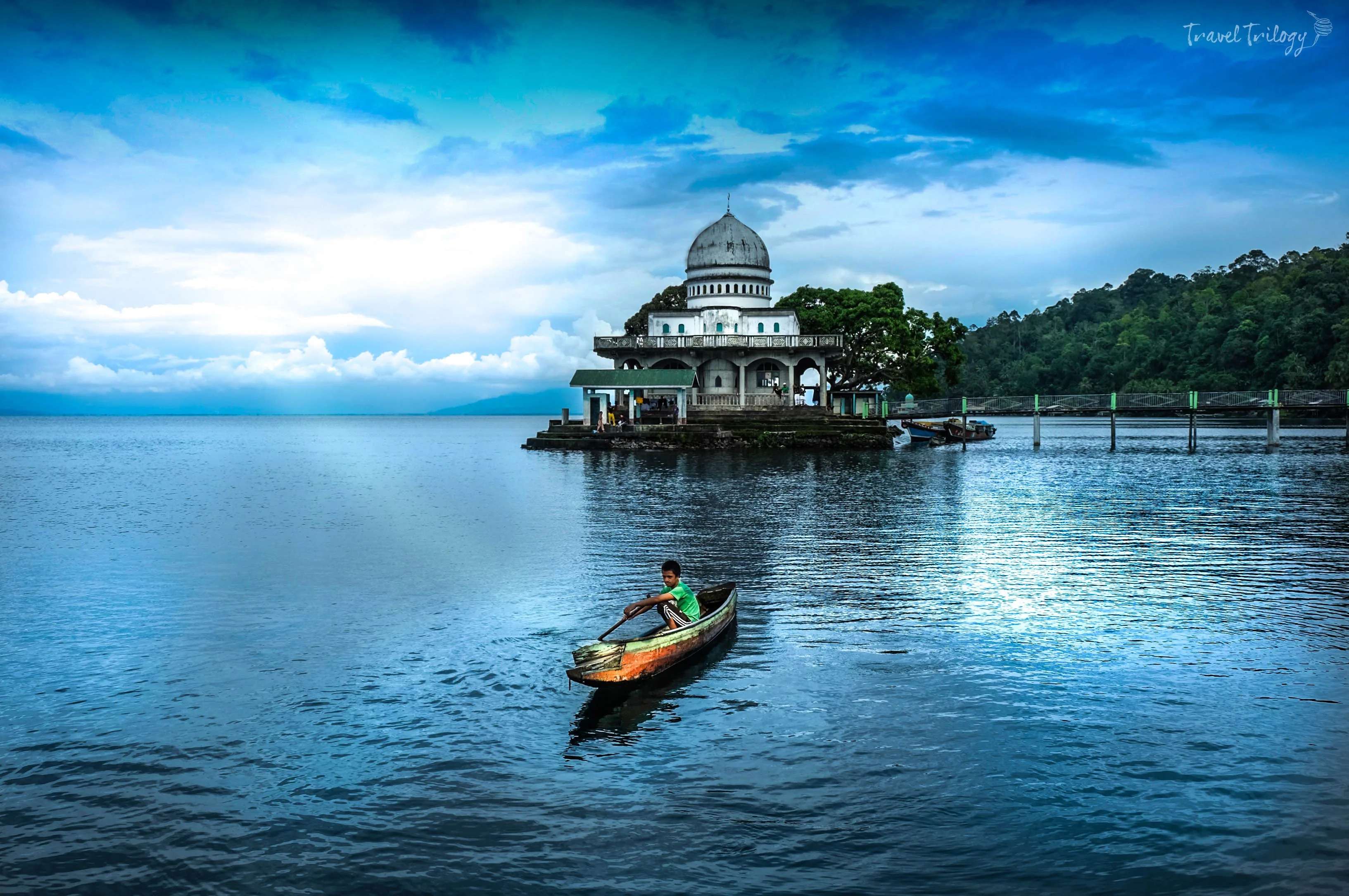

Lanao del Sur, officially the Province of Lanao del Sur, is a province in the Philippines located in the Bangsamoro Autonomous Region in Muslim Mindanao (BARMM) occupying the Sulu Archipelago and the provinces of Lanao del Sur and Maguindanao in central Mindanao. The capital is the city of Marawi, and it borders Lanao del Norte to the north, Bukidnon to the east, and Maguindanao del Norte and Cotabato to the south. To the southwest lies Illana Bay, an arm of the Moro Gulf.
Situated in the interior of Lanao del Sur is Lanao Lake, the largest in Mindanao.
"Lanao" means "lake", derived from ranao. The province, situated at basin of Lake Lanao, is known as the land of the "Maranaos" (which means "the "people of the lake").
The province has a land area of 13,494.37 square kilometers or 5,210.21 square miles. Its population as determined by the 2015 Census was 1,045,429. This represented 27.65% of the total population of the Bangsamoro Autonomous Region in Muslim Mindanao, 4.33% of the overall population of the Mindanao island group, or 1.04% of the entire population of the Philippines. Based on these figures, the population density is computed at 77 inhabitants per square kilometer or 201 inhabitants per square mile.
Lanao del Sur has a long, colourful history to share. The Darangen Epic, famous among the Maranaos, relates about ther events and people and defines the old towns during pre-colonial period. Lanao is the home of Maranao sultanate modernly known as the four princilpalities or Pat a Pagampong sa Ranao namely Masiu, Unayan, Balo-I and Bayabao. The Sultanate governs independently yet it is still identified with the national community. Its political power and domain is equally recognized like those in Sulu and Maguindanao.
Prior to the arrival of Islam, the region already had a sophisticated culture, as embodied in various Maranao epics, chants, and recorded history. The people of Lanao used to adhere to Hinduism, polytheist animism, and Buddhism. During this era, various cultural icons developed, such as the torogan, the singkil dance, the darangen epic, the unique Maranao gong and metal craft culture, the sarimanok, the okir motif, and an indigenous suyat script.
Lanao was first explored by the Spaniards in 1689, upon which they discovered a well-settled community named Dansalan at the lake's northern end. Lanao was the seat of the Sultanate of Lanao.
In the heyday of colonialism, Lanao is proud to have resisted the succeeding foray of Spanish, American and Japanese intrusions. The saga of Maranao heroes who fought bravely in the so-called Moro Wars during the Spanish colonization along with their Tausug and Maguindanao brothers are living proofs. The legendary battles of Bayang, Sultan Gumander, Ganassi and Tugaya records Maranao fighters armed with kris, spear, bow and arrow faced the canons and rifles of the Americans, exhibiting Maranao assertion for freedom and distinct political identity. The Japanese likewise failed following the fate of its predecessors.
In 1956, Republic Act No. 1552 changed the name Dansalan to Marawi, taken from the word rawi, referring to the reclining lilies abundant in the Agus River.
The creation of Lanao del Sur is dated during the height of the Commonwealth government campaign for settlement in Mindanao. The undivided Lanao was administratively part and a political unit of the Moro province by virtue of Philippine Commission Act No. 787. Thereafter, in May 27, 1959 by virtue of Republic Act No. 2228, the unified Lanao was divided into two distinct provinces, namely Lanao del Sur and Lanao del Norte. Lanao del Sur was officially chartered on July 4, 1959.
Lanao del Sur went through phases of political changes. As a result of the negotiated settlement with the MNLF (Tripoli Agreement) during the Martial Law years, President Marcos issued P.D. No. 742 which included Lanao del Sur in the Autonomous Region in Muslim Mindanao (ARMM). The constituents of Lanao del Sur affirmed the province inclusion in ARMM during the plebiscite on February 19, 1989. Although Marawi City refused to join first, it reconsidered its position later in 2001.
Lanao del Sur is composed of 39 municipalities and Marawi City. The Province is currently composed of 1,159 barangays and is divided into two congressional districts.